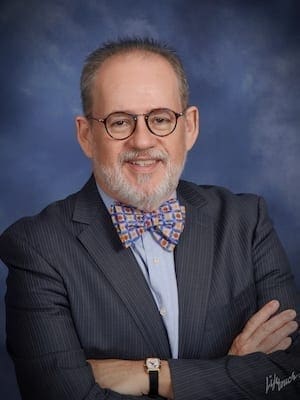What does one do with a grief that is not normal?
By not normal, I mean a grief that comes as the result of a heinous crime or tragedy.
“The Shack,” based on the novel by William Paul Young, tells the story of a father who lost a child to a predator.
Mackenzie “Mack” Phillips (Sam Worthington) is a man who has had one of life’s great insults placed on his life: His youngest daughter was killed by a serial killer.
The child was abducted from a campsite and taken to a shack deep in the forest.
Mack, at first, blames himself for her death, but that turns toward his anger at God.
He gets an invitation to come back to the scene of her death from God, who calls himself Papa.
Papa is the name Mack’s wife, Nan (Radha Mitchell), uses for God. Nan does most of the religious heavy lifting in the family.
Mack goes and finds the shack transformed.
He first meets a very Arabic-looking man who is Jesus (Avraham Aviv Alush). Then he sees a Japanese woman named Sarayu (Sumire Matsubara), who is the Holy Spirit. Inside is Papa, but Papa looks more like a Mama. Papa is an African-American woman (Octavia Spencer).
The reason for the female form is that Mack had an abusive father, and Papa says that Mack is not ready to see God as male.
What follows is a weekend where Mack learns about God. He discovers that God is not some absentee landlord.
When questioned about why Jesus cried out about feeling forsaken, Papa shows her wrists to reveal the place where the nails went through as Jesus was nailed to the cross. She makes it clear she never left her son alone.
The idea is that the three people with Mack who are seemingly separate are truly related in a relational oneness that is beyond Mack’s full comprehension.
Mack asks about why God abandoned his daughter. Papa assures him that he was present at all moments while the daughter was in the travail of being with the killer.
As the weekend progresses, Mack is faced with some larger decisions that will be the determining factors of whether he can move on from where he is in his grief.
Issues of the judgment of others and forgiveness of others must be dealt with before he can go forward. Mack must come face to face with some things that are hard, but he does so with the presence of the three-in-one.
“The Shack” has been controversial since the book on which the film is based was published. What Young did, and the movie follows suit, is present a non-orthodox vision of the Trinity.
The doctrine of the Trinity has always been a sticky wicket for most Christians. The mystery of it is so great that many of us cannot give a good explanation for it. Most of our attempts cannot do justice to the greatness of it.
The movie does nothing but reinforce what Young wrote. It presents a vision of the Trinity as a group of three who are connected in a unique relationship and that connection is what makes the three-in-one work.
My problem with much of the criticism of the book and film is this: People who may be moved by “The Shack,” who have unresolved issues with grief, do not need to hear a lecture on what is theologically wrong with the movie.
This means that people who see the movie without issues of grief and then try to engage the grief-stricken often do so without consideration of the pain the grievers have.
Too many people want to focus on what is wrong with the movie rather than the millions of people struggling with unresolved grief.
When theological critique becomes more important than people in pain who are helped by the film, then viewers and reviewers have missed the opportunity the movie presents.
“The Shack” seeks to help viewers to see God not as merely the author of grief, but one who walks in the midst of it as a fellow sufferer.
But if we want to get caught up with our stuff at the exclusion of others, we miss the chance of speaking a word of hope amid a time of doubt.
Michael Parnell is pastor of Temple Baptist Church in Raleigh, North Carolina. He is married and has two boys. His love is for movies, and he can be found in a theater most Fridays.
MPAA Rating: PG-13 for thematic material including some violence.
Director: Stuart Hazeldine
Writers: John Fusco, Andrew Lanham and Destin Daniel Cretton, based on the novel by William P. Young.
Cast: Sam Worthington (Mac Phillips), Octavia Spencer (Papa), Radha Mitchell (Nan), Avraham Aviv Alush (Jesus), Sumire Matsubara (Sarayu).
The movie’s website is here.

